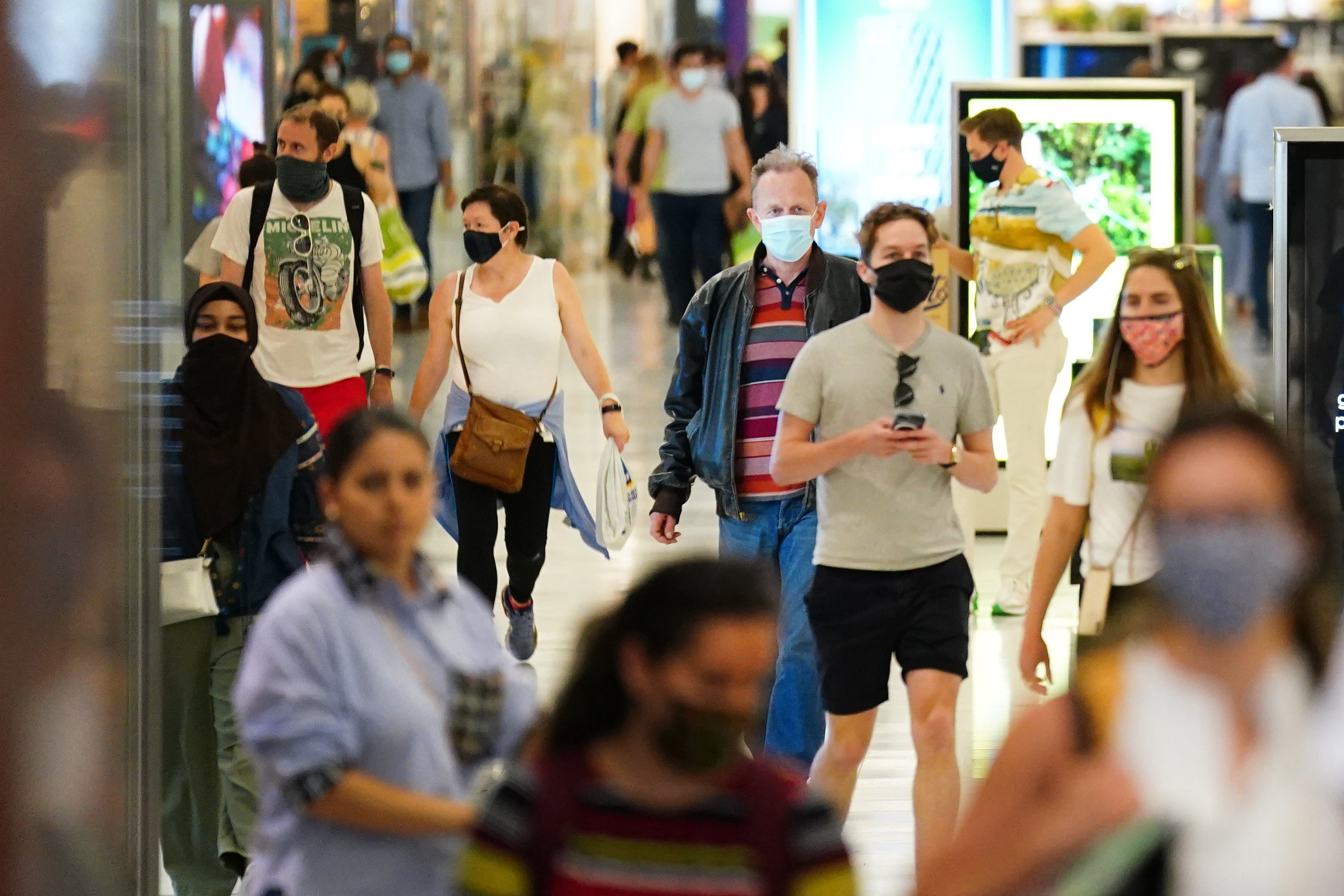Inflation and pent-up demand cools services sector recovery
The services sector, which includes leisure, hospitality and retail, remains strong following the easing of lockdown but slowed in May.

Your support helps us to tell the story
From reproductive rights to climate change to Big Tech, The Independent is on the ground when the story is developing. Whether it's investigating the financials of Elon Musk's pro-Trump PAC or producing our latest documentary, 'The A Word', which shines a light on the American women fighting for reproductive rights, we know how important it is to parse out the facts from the messaging.
At such a critical moment in US history, we need reporters on the ground. Your donation allows us to keep sending journalists to speak to both sides of the story.
The Independent is trusted by Americans across the entire political spectrum. And unlike many other quality news outlets, we choose not to lock Americans out of our reporting and analysis with paywalls. We believe quality journalism should be available to everyone, paid for by those who can afford it.
Your support makes all the difference.The UK’s all-important services industry continued its rapid recovery, although the speed of growth cooled from highs set in May, according to new data.
The closely-followed IHS Markit CIPS Purchasing Managers’ Index (PMI) recorded a reading of 62.4 for June – down from 62.9 for May, but still representing some of the fastest growth in output for 24 years.
Any score above 50 is a sign of a sector in growth.
This return to robust activity should have service providers relieved at the new opportunities after lockdown, but a modicum of doubt has crept in.
Strong recoveries as the hospitality and leisure sector reopened after lockdown restrictions were eased helped drive the growth.
But bosses are reporting the pent-up demand is having an impact on supply chains, with heavy delays and inflation at record rates both in prices charged by suppliers and subsequently passed on to customers.
Increased raw material prices and greater transportation charges were the main factors pushing up costs.
The Bank of England’s former chief economist recently warned that inflation could hit 4% this year and Governor Andrew Bailey said last week inflationary pressures could be here for the rest of the year – although he said it should subsequently ease over time.
Job shortages are also impacting the sector, with companies struggling to fill vacancies quickly enough, leading to higher staff wages.
The turnaround has led to the fastest rate of job creation for seven years, the survey found.
Backlogs to business and unfinished projects due to the high demand hit their steepest level since the survey started in July 1996, researchers added.
Survey respondents said they had seen a surge in demand for consumer services and a continued boost from looser pandemic restrictions on trade.
There were also reports citing new project launches and higher levels of business investment in response to the improving economic outlook.
But despite the strong growth in the UK for services, companies reported a slight fall in export sales, with international travel restrictions and uncertainties about quarantine policies the most commonly cited factor.
Some firms also said Brexit-related issues had dampened export orders to the EU.
Tim Moore, economics director at IHS Markit, which compiles the survey, said: “The service sector recovery remained in full swing during June as looser pandemic restrictions released pent up demand for business and consumer services.”
He added: “The latest survey data highlighted survey-record rates of input cost and prices charged inflation across the service sector, reflecting higher commodity prices, transport shortages and staff wages.
“Imbalanced supply and demand was the main driver, while the roll-back of pandemic discounting by some service providers amplified the latest round of price hikes.”
Duncan Brock, group director at the CIPS, said: “This return to robust activity should have service providers relieved at the new opportunities after lockdown, but a modicum of doubt has crept in.
“Optimism dropped to the lowest since January, while restricted international travel depressed overseas orders and interrupted supply lines as shortages increased.
“The rush to build operating capacity meant skilled labour became increasingly expensive too, adding to the cost burden woes.”